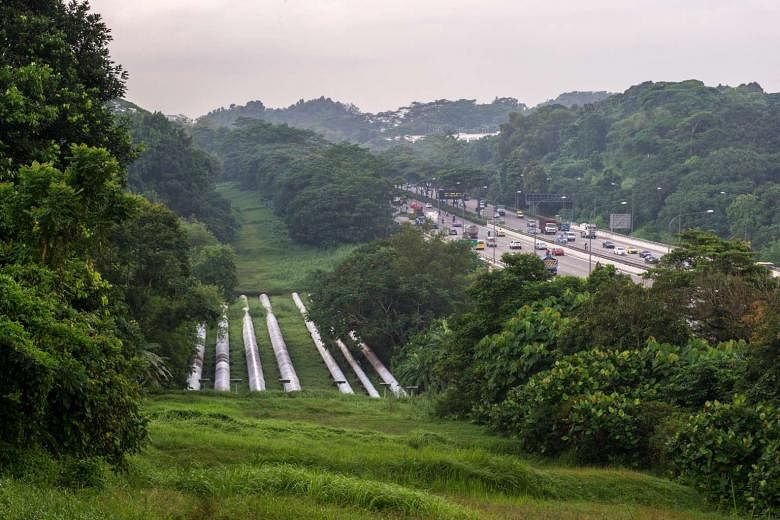SINGAPORE - About 60km of new potable water pipelines, including a new one in Punggol, will be built here over the next two years to meet demands from new developments, national water agency PUB said on Wednesday (May 17).
This includes the $365-million Murnane pipeline, which was first announced in 2014, to meet future water demands in the city. Demand is expected to double to about 60 million gallons (about 115 million litres) a day by 2060.
The trunk pipeline will extend from Bukit Timah to Maxwell Road, past the former Tanjong Pagar Railway Station, linking Murnane Service Reservoir to the city. Construction began in the second quarter of last year and is expected to be completed in 2019.
A new pipeline in Punggol is also in the works, to meet increased water demands there.
Over the past six years, the Punggol estate has doubled - from about 65,000 residents in 2011 to more than 130,000 last year - according to government data.
Furthermore, the Government is looking into creating 6,000 HDB flats in a new Bayshore district at East Coast, based on tender documents put up by the Urban Redevelopment Authority in January.
The first 4km of the pipeline from Punggol Way to Sungei Serangoon is currently under construction, with the tender for the next 3km from Sungei Serangoon to Elias Road to be called at the end of the year. A further 5km, which will connect the Punggol Pipeline to the TPE Pipeline, is currently under study.
There are currently some 5,500km of potable water pipelines in Singapore.
About 40 per cent of the 22km Murnane pipeline and most of the first 4km stretch of the Punggol Pipeline will be laid using a pipe jacking method. The method involves tunnelling underground beneath existing infrastructure. These include MRT tunnels, power cables, and drains.
"We have to do this because our urban setting is more dense now. In fact, there is a lot of underground infrastructure that we have to bypass," said Environment and Water Resources Minister Masagos Zulkifli at a visit to the Murnane Pipeline worksite at Tanglin Halt on Wednesday morning. "The best way to do it is to go below them, deep under them."
Pipe jacking is about two-and-a-half times more expensive than the open-cut method - where the ground is dug, pipes are laid and then covered back up - and is also a slower process.
In addition to the new projects, PUB also announced that it will be renewing 75km of older pipelines over the next two years, as part of its routine network maintenance and improvements.

